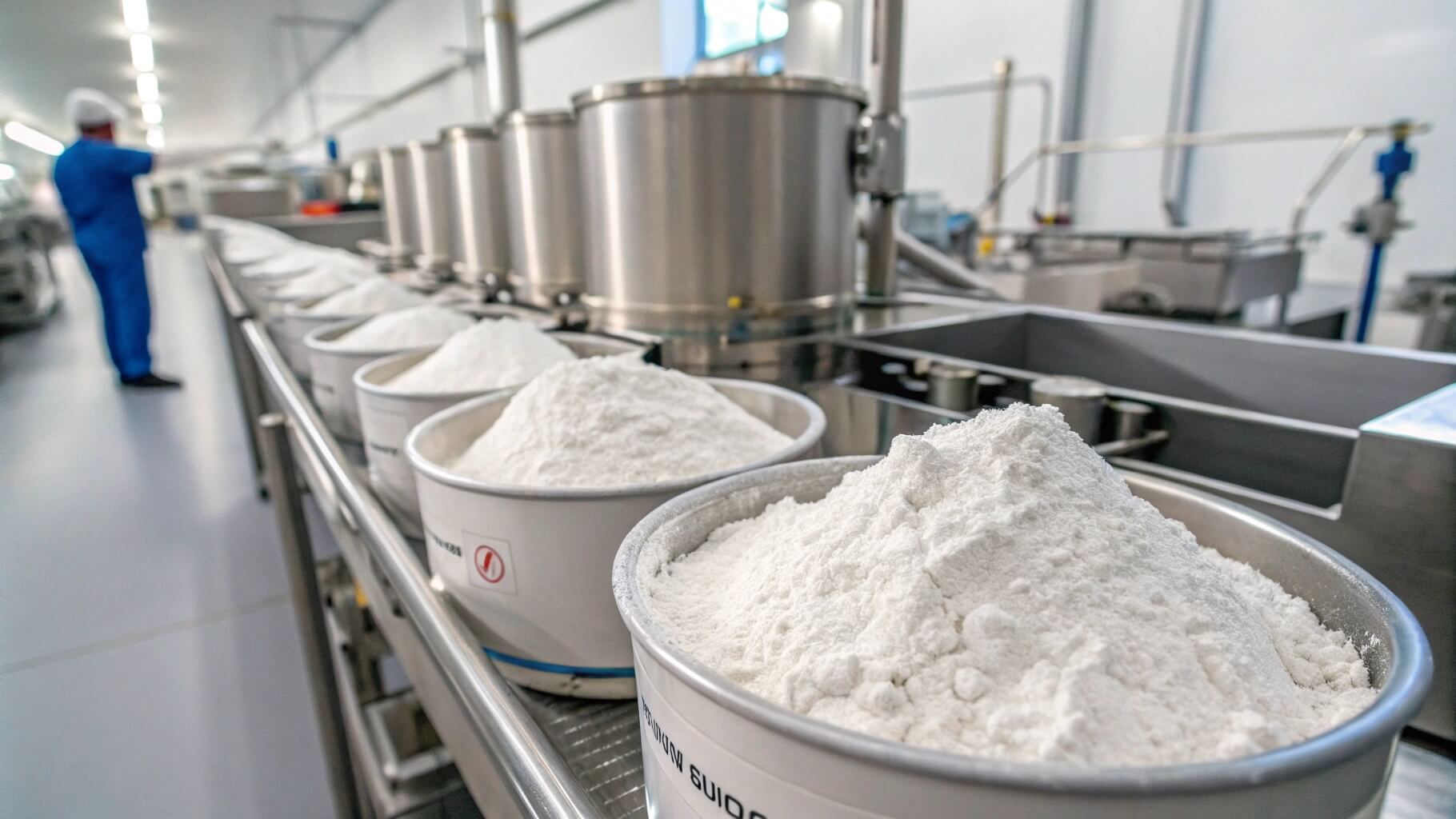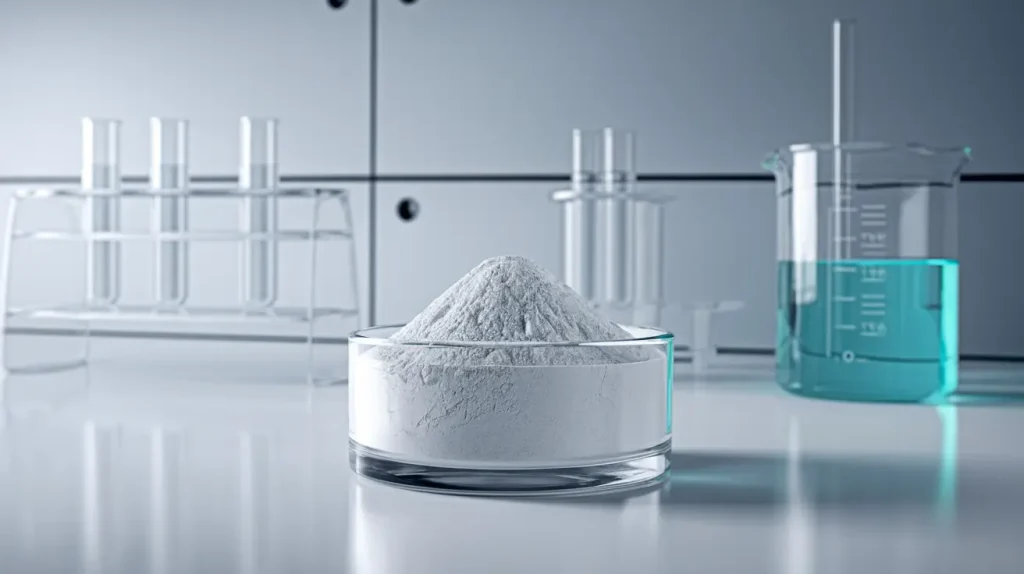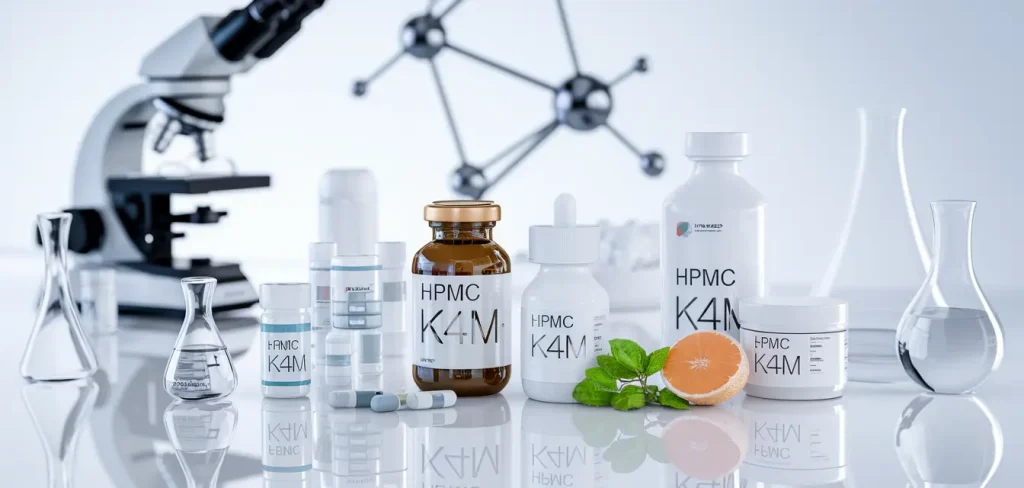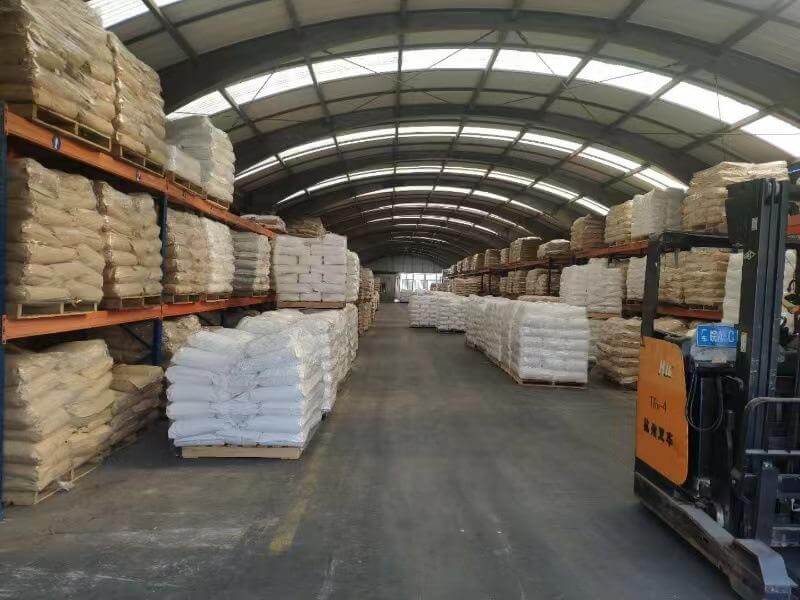Selezionare la cosa sbagliata Produttore di HPMC can lead to inconsistent product quality, delivery delays, and compliance issues. This affects everything from construction performance to pharmaceutical stability. Choosing the right supplier ensures stable formulations, reliable supply, and regulatory compliance—critical factors for long-term business success.
A reliable HPMC manufacturer should offer consistent product quality, adherence to international standards, and competitive pricing. They should also provide technical support, customization options, and efficient logistics to meet industry-specific requirements. Evaluating manufacturing capabilities, supply chain stability, and quality control helps businesses make informed decisions.

This image illustrates the key stages in Produzione di HPMC, from raw material processing to final product quality assurance.
Trovare il giusto Produttore di HPMC involves understanding industry-specific needs, comparing suppliers, and analyzing their production and logistics capabilities. In the next sections, we’ll break down key factors, quality assessment methods, product variations, pricing considerations, and warning signs to watch for.
Perché è importante scegliere il giusto produttore di HPMC?
Selecting an unreliable HPMC manufacturer can lead to batch inconsistencies, compliance failures, and delayed shipments. These issues disrupt production, increase costs, and negatively impact end-product performance. Finding a trusted supplier ensures stable quality, regulatory compliance, and a reliable supply chain.
A high-quality HPMC manufacturer provides consistent viscosity, proper substitution levels, and strict adherence to industry standards such as USP, EP, and JP. They also maintain ISO-certified facilities, rigorous quality control systems, and reliable logistics, ensuring that customers receive products that meet their specific formulation needs.
L'impatto della scelta del produttore sbagliato
An unreliable Fornitore di HPMC può introdurre serious operational risks for businesses. Below are the common challenges faced due to poor supplier selection:
| Problema | Consequences |
|---|---|
| Qualità incoerente | Fluctuating product performance in construction, pharmaceuticals, and food industries |
| Non conformità normativa | Risk of product rejection due to failure to meet USP, EP, JP, or REACH standards |
| Interruzioni della catena di fornitura | Production delays and missed deadlines due to unreliable deliveries |
| Costi nascosti | Unexpected fees for small orders, additional customs duties, or inadequate after-sales support |
Long-Term Business Stability
Working with a reputable HPMC manufacturer assicura a steady supply of high-quality raw materials, protecting your production cycles and brand reputation. A good supplier should provide transparent documentation, technical support, and tailored product solutions to help optimize formulations and reduce long-term costs.
Scegliere il giusto Fornitore di HPMC goes beyond just price considerations. It affects product consistency, compliance, and overall business efficiency. In the next section, we’ll explore the key factors to consider when selecting an HPMC manufacturer.
Quali sono i fattori chiave nella scelta di un produttore di HPMC?
Non tutti Produttori di HPMC offer the same level of quality, consistency, and service. Selecting the wrong supplier can result in product inconsistencies, supply chain disruptions, and regulatory risks. To avoid costly mistakes, businesses need to evaluate several critical factors before committing to a supplier.
When choosing an HPMC manufacturer, considerare product quality, compliance with international standards, production capacity, customization capabilities, and supply chain reliability. A strong supplier will have a proven track record, transparent quality control processes, and efficient logistics.
Key Criteria for Evaluating an HPMC Manufacturer
The following factors should guide your supplier selection process:
| Fattore | Perché è importante |
|---|---|
| Qualità e coerenza del prodotto | Ensures stable viscosity, water retention, and solubility in formulations |
| Conformità normativa | Deve incontrarsi USP, EP, JP e REACH standards to avoid legal or market rejections |
| Capacità di produzione | Ability to scale production based on demand fluctuations |
| Customization & R&D Support | Tailored solutions for specific applications in edilizia, farmaceutica e alimentare |
| Catena di fornitura e logistica | Reliable delivery timelines and optimized shipping options |
| After-Sales Support | Quick responses to technical issues and formulation guidance |
Understanding Supplier Transparency
UN trustworthy HPMC manufacturer will provide:
- Detailed batch reports for quality assurance
- Certificates of analysis (COA) E material safety data sheets (MSDS)
- Consistent supply without major batch variations
- Supporto tecnico to resolve product compatibility challenges
Verifying a Manufacturer’s Reputation
Before finalizing a supplier, businesses should:
- Richiesta sample batches to test product performance
- Condotta audit di fabbrica to assess production standards
- Valutare customer reviews and industry reputation
- Valutare response time and communication efficiency
Un fornitore reliability, transparency, and ability to meet technical specifications will directly impact product quality and operational efficiency. In the next section, we will explore how to assess the quality of HPMC from a manufacturer.
How to Assess the Quality of HPMC from a Manufacturer?
Purchasing HPMC without verifying its quality can lead to inconsistent performance, poor solubility, and regulatory failures. Manufacturers may claim high standards, but without proper assessment, businesses risk using subpar materials that compromise their final products.
Evaluating HPMC quality coinvolge checking key physical and chemical properties, reviewing compliance documents, and conducting lab tests. A reliable manufacturer will provide detailed batch reports, third-party certifications, and consistent product performance.
Key Quality Parameters to Assess
When evaluating an Fornitore di HPMC, consider the following critical factors:
| Quality Parameter | Importanza |
|---|---|
| Viscosità | Determines product performance in cement-based and pharmaceutical applications |
| Purity Level | Ensures minimal contamination and consistency across batches |
| Valore pH | Affects compatibility with other formulation ingredients |
| Contenuto di umidità | Impacts product stability and shelf life |
| Temperatura del gel | Influences solubility and thickening behavior |
| Grado di sostituzione | Determines water retention, adhesion, and film formation properties |
Methods for Testing HPMC Quality
A reputable manufacturer should provide transparent testing data and allow third-party verification. Companies should use the following methods to evaluate product quality:
-
Laboratory Analysis
- Measure consistenza della viscosità using a rotational viscometer.
- Eseguire moisture analysis to check water content levels.
- Verificare substitution degree to ensure expected performance.
-
Batch-to-Batch Consistency
- Richiesta COA (Certificate of Analysis) for each shipment.
- Compare multiple samples to detect variations in color, texture, and solubility.
- Test product performance in real-world applications before committing to bulk orders.
-
Compliance & Certification Review
- Ensure HPMC meets USP, EP, and JP pharmaceutical standards.
- Confirm compliance with REACH regulations per il commercio internazionale.
- Verify factory ISO certification for quality management assurance.
Signs of Poor-Quality HPMC
Red flags indicating substandard HPMC include:
- Inconsistent viscosity causing variable performance in formulations.
- Contenuto eccessivo di umidità, leading to premature degradation.
- Lack of certification or refusal to provide third-party lab results.
- Noticeable color variations, which may indicate contamination or improper processing.
Seguendo a structured quality assessment process, businesses can avoid unreliable manufacturers and select a supplier that guarantees stable and high-performing HPMC. Next, we will explore the different types of HPMC a manufacturer should offer.
What Types of HPMC Should a Manufacturer Offer?
Non tutti HPMC products are the same. Different industries require specific grades with varying properties for optimal performance. Choosing a manufacturer with a comprehensive product portfolio ensures that you get the right formulation for your applications.
Un affidabile Produttore di HPMC dovrebbe offrire multiple viscosity grades, different substitution levels, and tailored formulations to meet the demands of construction, pharmaceuticals, food, and other industries.
Common Types of HPMC and Their Applications
Manufacturers typically classify HPMC based on viscosity, purity, and substitution degree. Below is an overview of the major types:
| Tipo HPMC | Key Applications | Caratteristiche |
|---|---|---|
| HPMC di grado costruttivo | Tile adhesives, dry mix mortars, wall putty | Improves water retention, adhesion, and workability |
| HPMC di grado farmaceutico | Compresse, capsule, rivestimenti per farmaci | Used as a binder, film-former, and controlled-release agent |
| HPMC di grado alimentare | Dairy products, plant-based foods, gluten-free baking | Functions as a thickener, emulsifier, and stabilizer |
| Personal Care HPMC | Cosmetics, shampoos, lotions | Enhances viscosity, texture, and moisture retention |
| Industrial & Specialty HPMC | Paints, detergents, oilfield chemicals | Provides thickening, suspension, and rheology control |
Viscosity & Substitution Variations
Apart from industry-specific grades, Produttori di HPMC should provide multiple viscosity levels and degrees of substitution, as these impact solubility, water retention, and film formation.
-
Viscosity Variations
- Low-viscosity HPMC (3,000–10,000 mPa·s) – Suitable for self-leveling compounds and food applications.
- Medium-viscosity HPMC (20,000–50,000 mPa·s) – Used in wall putty, drug coatings, and cosmetics.
- High-viscosity HPMC (75,000–200,000 mPa·s) – Ideal for tile adhesives, mortars, and controlled-release pharmaceuticals.
-
Substitution Degree (DS & MS)
- Higher substitution leads to better water retention and surface activity.
- Lower substitution improves film strength and adhesion.
Customization & Special Formulations
Superiore Produttori di HPMC should provide soluzioni personalizzate, tra cui:
- Modified dissolution rates per applicazioni specifiche.
- Surface-treated HPMC for better dispersibility in water.
- Specialty grades for enhanced rheological properties.
Selecting a manufacturer with a diverse product range ensures that your business can access the exact specifications needed for optimal performance. Next, we’ll analyze how logistics and pricing influence your decision when choosing an HPMC supplier.
How Do Logistics and Pricing Influence Your Decision?
Even with high-quality HPMC, unreliable logistics and unpredictable pricing can disrupt supply chains, increase costs, and impact production schedules. Businesses must evaluate both pricing structures and logistics capabilities when selecting an Produttore di HPMC to ensure cost efficiency and timely deliveries.
A strong HPMC supplier dovrebbe offrire transparent pricing, competitive shipping options, and reliable lead times. Additionally, understanding total landed costs—including customs, duties, and hidden fees—is essential for effective budgeting.
Key Pricing Factors in HPMC Procurement
The cost of HPMC depends on several elements, including raw material availability, production efficiency, and supply chain stability. Here’s a breakdown of the critical pricing factors:
| Fattore di prezzo | Impatto sugli appalti |
|---|---|
| Costi delle materie prime | Fluctuations in cellulose ether prices directly affect HPMC pricing |
| Efficienza produttiva | High-tech factories with optimized processes offer better cost-efficiency |
| Quality & Compliance | Certified HPMC (USP, EP, JP) may cost more but ensures regulatory acceptance |
| Bulk Ordering | Large-volume purchases often reduce per-unit costs |
| Hidden Fees | Unexpected charges such as customs duties or small-order surcharges can affect final pricing |
Logistics & Supply Chain Considerations
Beyond pricing, logistics efficiency is a crucial factor In HPMC procurement. Delays or inefficient shipping can cause inventory shortages and production halts. Evaluate your supplier’s logistics capabilities based on:
-
Lead Time & Delivery Reliability
- Check average shipping times for different regions.
- Assess warehouse locations for optimal distribution.
- Ensure backup supply options to prevent disruptions.
-
Shipping & Customs Handling
- Understand Incoterms (FOB, CIF, DDP) for cost transparency.
- Factor in import duties and customs clearance efficiency.
- Confirm the supplier’s ability to handle international logistics smoothly.
-
Minimum Order Quantities (MOQs)
- Low MOQs can be beneficial for trial batches.
- High MOQs may lower per-unit costs but require larger storage capacity.
-
Supplier Communication & Tracking
- Un affidabile Fornitore di HPMC fornisce real-time tracking and responsive communication.
- Transparent updates on order status prevent unexpected delays.
Balancing Cost and Supply Chain Efficiency
Mentre prezzi competitivi is important, choosing the cheapest supplier without evaluating logistics can result in hidden costs, stockouts, and operational risks. A strategic HPMC procurement decision should factor in both cost efficiency and logistics reliability.
Successivamente, esamineremo the red flags to avoid when selecting an HPMC supplier, helping you identify potential risks before making a commitment.
What Are the Red Flags to Avoid in an HPMC Supplier?
Selezionare la cosa sbagliata Fornitore di HPMC può portare a inconsistent quality, delivery delays, and regulatory issues. These problems not only increase costs but can also disrupt production and harm business relationships. Knowing the warning signs of an unreliable supplier helps businesses avoid costly mistakes.
An unreliable HPMC supplier often shows signs of poor quality control, lack of certifications, inconsistent pricing, and weak communication. Identifying these red flags early prevents operational risks and supply chain disruptions.
Major Warning Signs in an HPMC Supplier
Before committing to an Produttore di HPMC, look for these red flags:
| Red Flag | Potential Risk |
|---|---|
| Lack of Certifications | Non-compliance with USP, EP, JP, or REACH standards may result in regulatory issues |
| Qualità del prodotto incoerente | Variations in viscosity, moisture content, or substitution degree lead to unstable formulations |
| No Batch Traceability | Inability to track production batches makes quality control and recalls difficult |
| Unrealistic Pricing | Extremely low prices often indicate poor-quality raw materials or hidden fees |
| Frequent Supply Delays | Repeated late shipments disrupt production and increase costs |
| Poor Customer Support | Slow response times and lack of technical assistance indicate unreliable service |
How to Identify an Unreliable Supplier
-
Request Sample Testing
- Condotta viscosity, moisture, and substitution degree tests.
- Compare results with the supplier’s Certificato di analisi (COA).
-
Review Regulatory Compliance
- Ensure the supplier meets standard di qualità internazionali.
- Verify that audit di fabbrica align with ISO and GMP guidelines.
-
Check Customer Reviews & Industry Reputation
- Cercare long-term client testimonials.
- Valutare supplier history for past inconsistencies or disputes.
-
Assess Supplier Transparency
- Reliable manufacturers openly share lab reports and production details.
- A lack of documentation or refusal to provide testing data is a red flag.
-
Evaluate Logistics Performance
- Ask about lead times, shipping methods, and backup supply options.
- Monitor on-time delivery rates to avoid last-minute disruptions.
Why Choosing the Right Supplier Matters
A dependable Fornitore di HPMC assicura consistent product performance, stable supply, and full regulatory compliance. Avoiding unreliable manufacturers helps businesses maintain production efficiency and market reputation.
Next, we’ll conclude with key takeaways on selecting the best HPMC manufacturer and how to make an informed decision.
Conclusion: Making an Informed Decision
Selezionare il giusto Produttore di HPMC is more than just a procurement decision—it directly impacts product quality, regulatory compliance, and long-term business stability. A poor supplier choice can lead to inconsistent formulations, supply chain disruptions, and hidden costs, while a reliable manufacturer ensures stable performance, transparent pricing, and dependable logistics.
Un forte Fornitore di HPMC dovrebbe offrire:
- Consistent product quality, verified through batch testing and international certifications (USP, EP, JP, REACH).
- Diverse product offerings, covering edilizia, farmaceutica, alimentare e cura della persona.
- Transparent pricing and supply chain efficiency, with clear shipping policies and lead times.
- Reliable technical support, compreso customized formulations and troubleshooting assistance.
By evaluating quality control processes, logistics capabilities, and customer feedback, businesses can make data-driven decisions when selecting an Fornitore di HPMC. Conducting sample tests, reviewing regulatory compliance, and assessing supplier transparency are essential steps in this process.
Looking for a reliable HPMC supplier? Contact us today for product specifications, quality certifications, and competitive pricing tailored to your industry needs.
Domande frequenti
Quali sono i diversi gradi di HPMC?
HPMC (idrossipropilmetilcellulosa) is available in multiple grades, primarily categorized by viscosity and application. The most common types include:
- HPMC di qualità costruttiva – Utilizzato in tile adhesives, dry mix mortars, and wall putty to improve water retention and workability.
- HPMC di grado farmaceutico – Utilizzato in tablet coatings, drug delivery systems, and controlled-release formulations.
- HPMC di qualità alimentare – Funziona come un stabilizzante, addensante ed emulsionante in dairy products, plant-based foods, and gluten-free baking.
- Personal care-grade HPMC – Migliora viscosity and texture in cosmetics, shampoos, and lotions.
Each grade is formulated with specific viscosity, purity levels, and gel temperatures to meet industry requirements.
Chi è il produttore di HPMC?
Ci sono molteplici HPMC manufacturers worldwide, with key production hubs in Cina, Germania, Giappone e India. Leading manufacturers include companies that specialize in pharmaceutical, construction, and food-grade cellulose derivatives. Morton is a trusted Fornitore di HPMC, fornendo high-quality, USP, EP, and JP-certified products for various industries.
How do you test for HPMC?
IL quality of HPMC is assessed using laboratory techniques that analyze proprietà fisiche e chimiche. Common tests include:
- Test di viscosità – Measured using a rotational viscometer to ensure batch consistency.
- Analisi del contenuto di umidità – Determines the water retention capacity and stability of the product.
- pH measurement – Ensures compatibility with formulation systems.
- Gel temperature testing – Verifies solubility and thermal properties.
- Substitution degree analysis – Determines methoxy and hydroxypropyl content, affecting adhesion and film formation.
These tests help manufacturers maintain quality control and regulatory compliance.
Qual è la differenza tra HPMC E5 ed E15?
HPMC E5 e E15 differ mainly in viscosità e applicazione:
- Motore HPMC E5 – Lower viscosity, commonly used in tablet coatings and pharmaceutical excipients per fast disintegration and film-forming applications.
- Motore HPMC E15 – Higher viscosity, often used in controlled-release drug formulations and industrial coatings where extended performance is needed.
Both types comply with pharmaceutical-grade standards (USP, EP, JP) but serve distinct functions in drug delivery and industrial applications.




